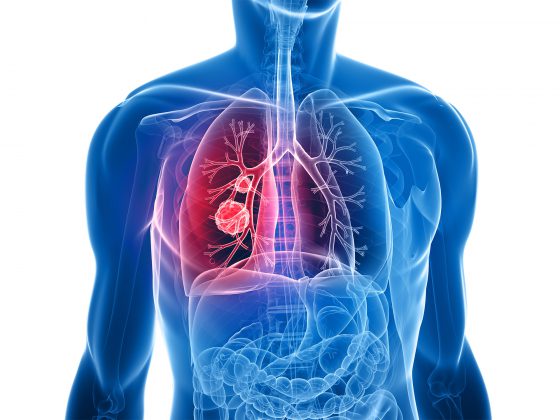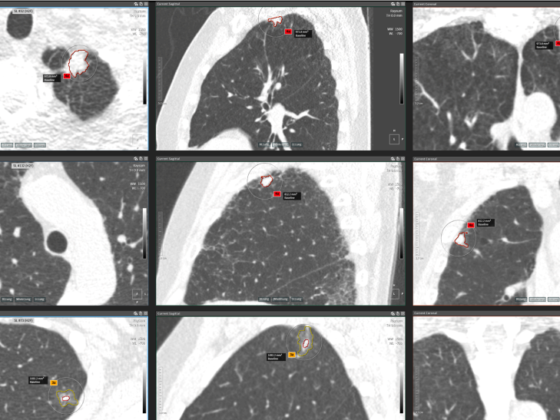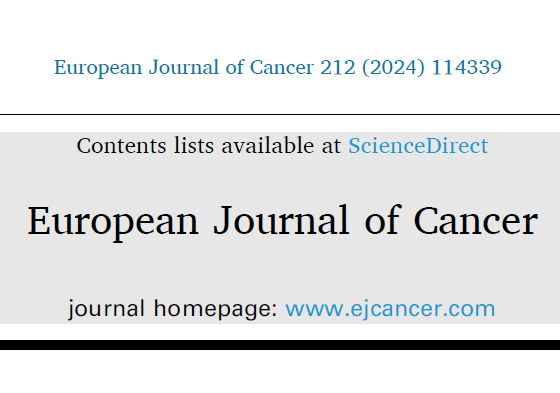New iDNA publication!
iDNA and partners have published new research validating the clinical performance of AI software in the medical scientific journal Lung Cancer: “Outstanding negative prediction performance of solid pulmonary nodule volume AI for ultra-LDCT baseline lung cancer screening risk stratification 1.
In the past 10 or so years, artificial intelligence (AI) and computer aided detection (CAD) systems have taken a prominent place in the landscape of image reading in radiology. In lung cancer screening (LCS)2 as well as in other fields, these systems often are implemented as a secondary reading to improve radiologist reading accuracy.
This is useful, as it can relieve the workload of radiologists whose expertise, due to the increased importance of imaging in healthcare, has been increasingly in demand for the past years. With the event of LCS programmes gaining traction in most western countries, this workload is looking to rise significantly in the coming years. Therefore, to prevent overloading the capacity of radiologists in the future, it is critical to find ways to reduce the radiologists’ workload.
In the Lung Cancer publication, the researchers tested the performance of an automated AI lung cancer screening prototype (AVIEW LCS, v1.0.34, Coreline Soft, Co.Ltd, Seoul, Korea) against five experienced radiologists in the first reading of a pre-specified LCS CT dataset, when using volumetric measurements with the 100mm3 NELSON-plus/EUPS protocol3 threshold in solid pulmonary nodules.
Both the radiologists and the AI classified all nodules present in the CT scans. Since 100mm3 is the upper mean threshold of benign growth, Malignant Nodule Probability Percentage rises sharply from this volume threshold on. Therefore, the AI has been trained to exclude low lung cancer probability nodules (smaller than 100mm3) only, to minimize the risk of missing the early detection of malignant nodules. AI performance showed an exclusion rate of up to 87% of all nodules, at the cost of only a very few potential malignant nodules. In direct comparison, four out of five radiologists performed considerably less compared to the AI.
This provides evidence that AI software can fulfil a significant role in future LCS programmes as first read, ruling out CT scans that do not require further reading by the radiologist. Only in 13% of patients nodules have to be read by an expert radiologist, decreasing the workload of radiologists in LCS programmes by an estimated 87%.
Validation of AI software brings cost-effective lung cancer screening within reach.
- H.L. Lancaster, S. Zheng, O.O. Aleshina, D. Yu, V. Yu. Chernina, M.A. Heuvelmans, G.H. de Bock, M.D. Dorrius, J. Willem Gratama, S.P. Morozov, V.A. Gombolevskiy, M. Silva, J. Yi, M. Oudkerk, Outstanding negative prediction performance of solid pulmonary nodule volume AI for ultra-LDCT baseline lung cancer screening risk stratification, Lung Cancer (2022), doi: https://doi.org/10.1016/j.lungcan. 2022.01.002.
- Oudkerk, M., Liu, S., Heuvelmans, M.A. et al. Lung cancer LDCT screening and mortality reduction — evidence, pitfalls and future perspectives. Nat Rev Clin Oncol 18, 135–151 (2021). https://doi.org/10.1038/s41571-020-00432-6
- Oudkerk M, Devaraj A, Vliegenthart R, Henzler T, Prosch H, Heussel CP, Bastarrika G, Sverzellati N, Mascalchi M, Delorme S, Baldwin DR, Callister ME, Becker N, Heuvelmans MA, Rzyman W, Infante MV, Pastorino U, Pedersen JH, Paci E, Duffy SW, de Koning H, Field JK. European position statement on lung cancer screening. Lancet Oncol. 2017 Dec;18(12):e754-e766. doi: 10.1016/S1470-2045(17)30861-6. PMID: 29208441.




